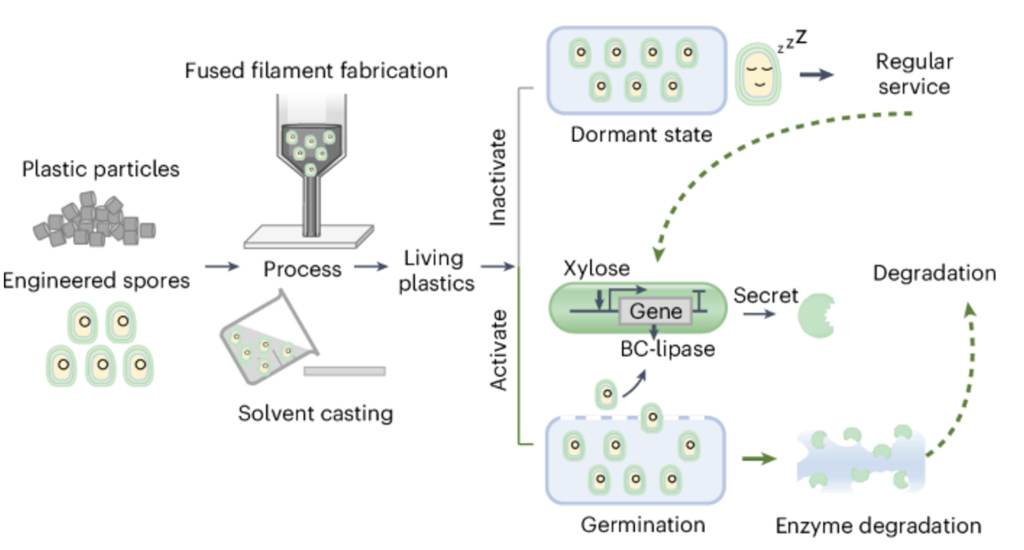https://www.nature.com/articles/s41589-024-01713-2
https://www.cas.cn/cm/202408/t20240826_5029798.shtml
The team of
The team of Dai Zhuojun, a researcher at the CAS Shenzhen Institute of Advanced Technology has embedded enzymes and biomachinery within polycaprolactone polymers to enable their biodegradation upon a triggering signal. Using synthetic biology and polymer engineering, Bacillus subtilis spores were engineered to harbor the gene circuit for the xylose-inducible secretory expression of Burkholderia cepacia lipase (BC-lipase). The spores that were resilient to stresses during material processing were mixed with poly(caprolactone) to produce “living plastics” in various formats. Spore incorporation did not compromise the physical properties of the materials. Spore recovery was triggered by eroding the plastic surface, after which the BC-lipase released by the germinated cells caused near-complete depolymerization of the polymer matrix.

